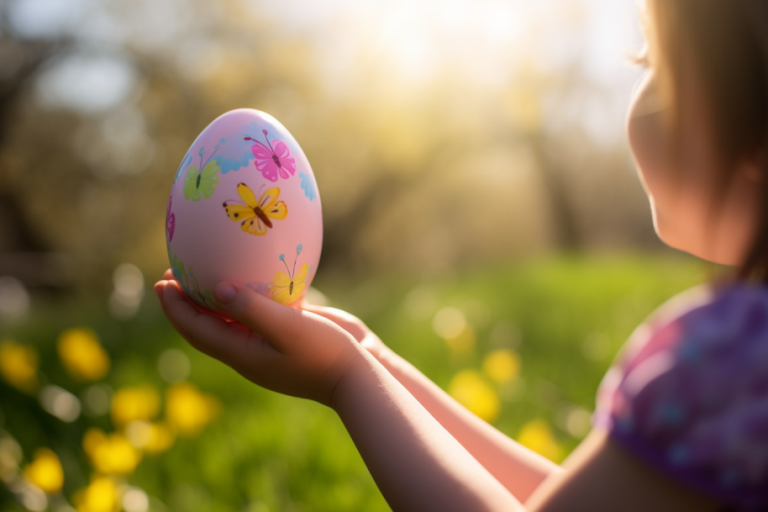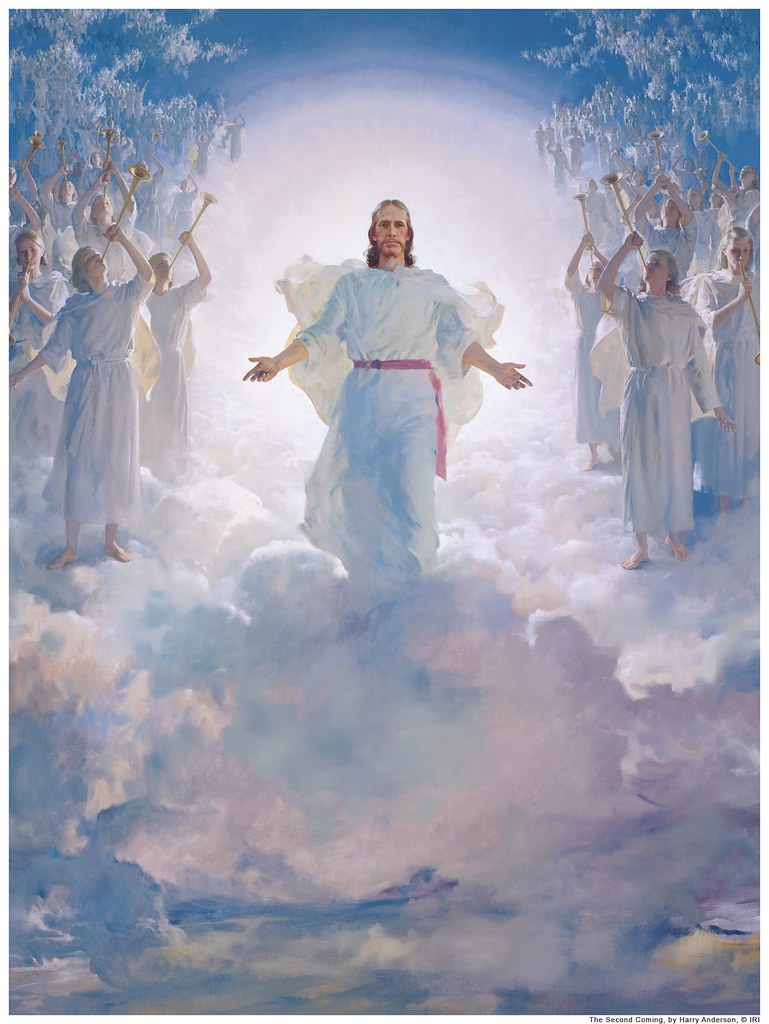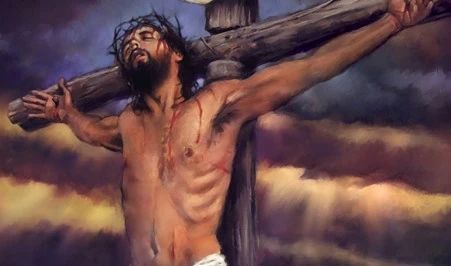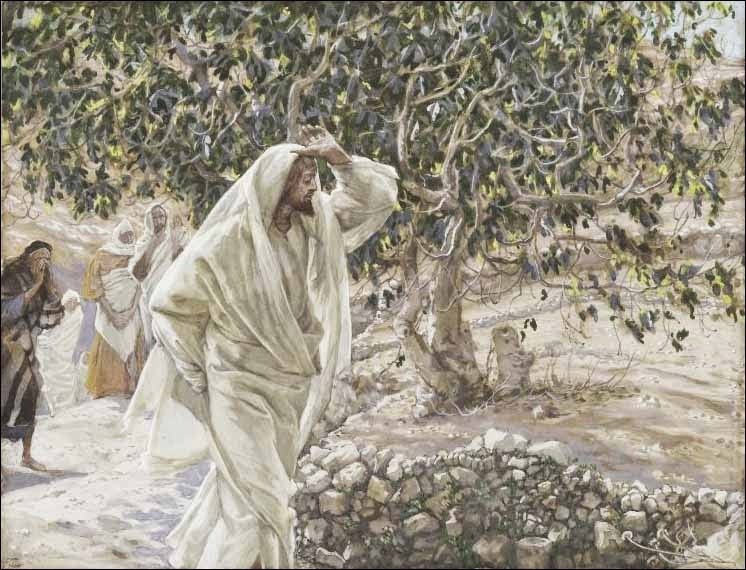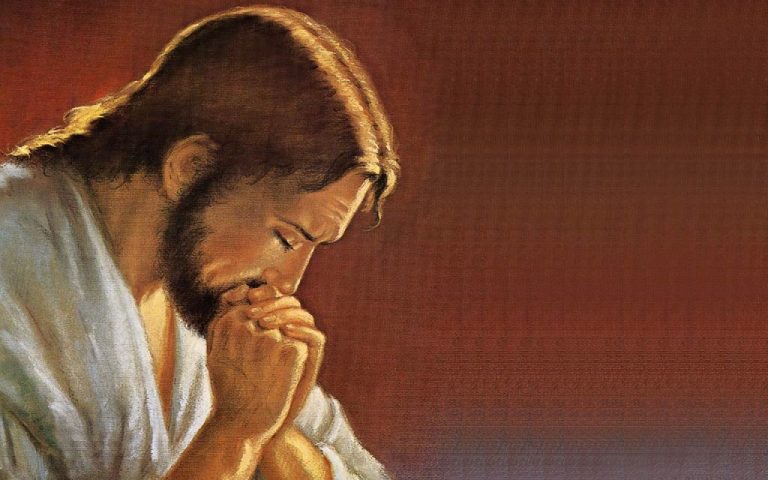What Do Easter Eggs Represent In Christianity?
Easter eggs have long been a symbol of celebration in Christianity. The egg, when cracked open, is said to represent new life in Christ’s resurrection. The egg’s rich symbolism is integral to the Easter holiday and its traditions.
In this article, we will explore what Easter eggs represent in Christianity and how they are used to celebrate Jesus’ rising from the dead. Easter eggs are a popular tradition during the Easter season. They represent new life, fertility, and hope for humanity as Jesus was resurrected on Easter Sunday.
They also serve as reminders of Christ’s love and sacrifice for us. We’ll look at how these symbols are observed throughout the year by Christians around the world and how their meanings have evolved over time.
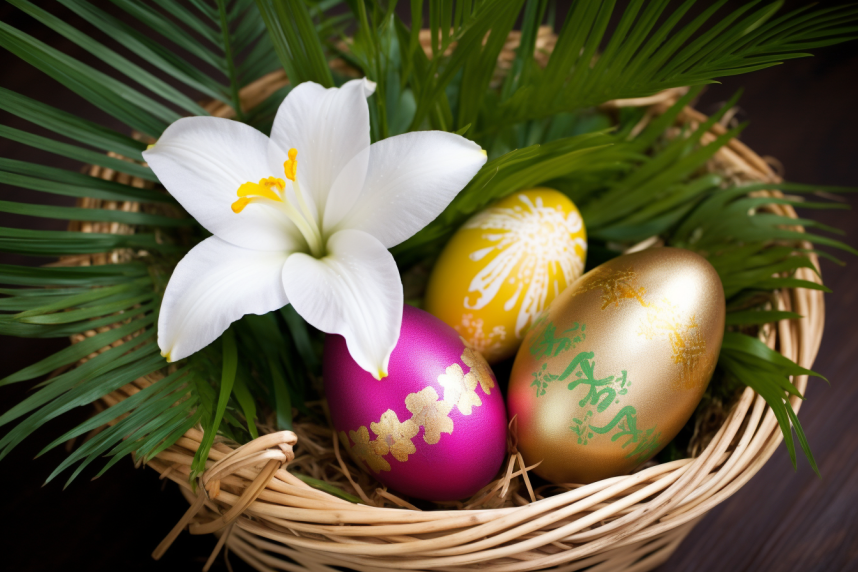
History Of Easter Eggs
Easter eggs have long been a symbol of Jesus Christ’s resurrection, representing the hope and joy associated with the Easter season. The symbolism of eggs has its roots in pre-Christian beliefs, when it was believed that eggs contained the entire universe.
In the Christian tradition, these symbols are interpreted as representing new life brought forth by the resurrection of Jesus Christ. As such, Easter eggs are often seen as tangible reminders of God’s love for all His children.
The act of decorating or giving away Easter eggs is also an important part of celebrating Easter. This activity dates back to Medieval Europe when bright colors were used to represent the coming spring and new life.
Today, many churches hold egg hunts or competitions to involve their congregations in this age-old tradition. It is considered a way for Christians to remember Jesus’ resurrection and celebrate His triumph over death.
In addition to decorating eggs, many families gather on Easter Sunday to share meals and exchange gifts to celebrate this special day.
Significance Of The Egg Shape
The egg shape of Easter is a reminder of the Holy symbolism and spiritual meaning associated with Easter in Christianity. It symbolizes new life, renewal, and hope for believers as they look forward to Jesus Christ’s resurrection from the dead.
The hard shell of an egg can be seen as representing the tomb Jesus was laid in for three days before he rose again.
The eggs also represent fertility, which is why eggs were traditionally given as gifts during Easter. This symbolizes the promise of abundance and prosperity that comes from faith in Jesus Christ.
The colorful decorations on Easter eggs are also representative of God’s creativity and the beauty He brings into our lives.
As we enjoy these special Easter treats, let us remember to thank God for His love and mercy that was shown through Jesus’ death and resurrection.
Coloring Eggs For Easter
Easter eggs are a beloved tradition in Christianity, with a long and symbolic meaning. The practice of coloring eggs for Easter is thought to originate from early Christians who adopted the Pagan tradition of dyeing eggs at Spring festivals.
As Christianity spread, so did the use of decorating eggs, which now symbolize the resurrection of Jesus Christ and new life in springtime.
Egg hunts are also popular during Easter celebrations and bring families together as they search for hidden eggs. The act of searching symbolizes the journey of discovering faith through Jesus Christ.
Families can also enjoy making their own colorful creations with dye kits or natural ingredients—a fun activity that helps to reinforce the significance of Easter.
As we celebrate this blessed holiday, let us also remember the true reason behind this ancient tradition—the resurrection of our Lord and Savior, Jesus Christ.
Decorating Easter Eggs
The practice of coloring eggs for Easter has long been a shared tradition among Christians, representing the symbolism of new life and renewal.
But the custom of decorating Easter eggs is not exclusive to Christianity.
Many cultures worldwide have adopted unique ways of preparing decorated eggs for this special holiday, often as an expression of joy and celebration.
The decorations used on Easter eggs can vary from person to person, but some common motifs include flowers, religious symbols such as crosses or doves, and even written messages.
Each design carries its own special meaning and can be used to express personal beliefs or celebrate shared traditions.
Decorated Easter eggs are a wonderful way for people to come together and honor their faith in creative ways.
Whether you choose to keep it simple with painted designs or get creative with intricate carvings, rest assured your effort will be appreciated by your family members and friends alike.
Eating Easter Eggs
It is a curious coincidence that the eggs used during Easter have long been viewed as symbols of fertility, new life, and resurrection.
For centuries, Christians have celebrated Easter by giving and consuming eggs. This practice is thought to be derived from pagan traditions where eggs were seen as symbols of fertility and new life.
On a deeper level, the symbolism of eggs for Christians can be related to the story of Jesus Christ’s death and resurrection. As a symbol of new life, an egg can serve as a reminder of how Jesus was resurrected from death after three days in the tomb.
This serves as a source of hope for all believers – that through death comes rebirth and renewal. Eating eggs during Easter can be both an act of celebration and remembrance; not only do they remind us of Jesus’ resurrection but also our own capacity for transformation.
Conclusion
Easter eggs have been a part of Christian tradition for centuries, and they represent many important aspects of the faith.
The egg shape symbolizes Jesus’s resurrection, while the color of the egg can be a reminder of Christ’s sacrifice on the cross.
Decorating Easter eggs is an enjoyable activity that allows families to express their creativity and share in the joy of this special holiday.
Eating Easter eggs is also a meaningful ritual that symbolizes new life and hope. For example, when I was growing up, my mom would always give us a hard-boiled egg on Easter morning as a reminder to have faith no matter what comes our way.
Through these rituals and symbols, Christians are reminded of Jesus’s death and resurrection and how it changed our lives forever.

Sangtea Hmar is a passionate leader of the Youth Christian Fellowship at the Electric Vengthlang Presbyterian Church in Aizawl, Mizoram, India. He is the owner of Christiantone.com and is committed to spreading the word of God. He loves to mentor youth and help them grow in their faith.


